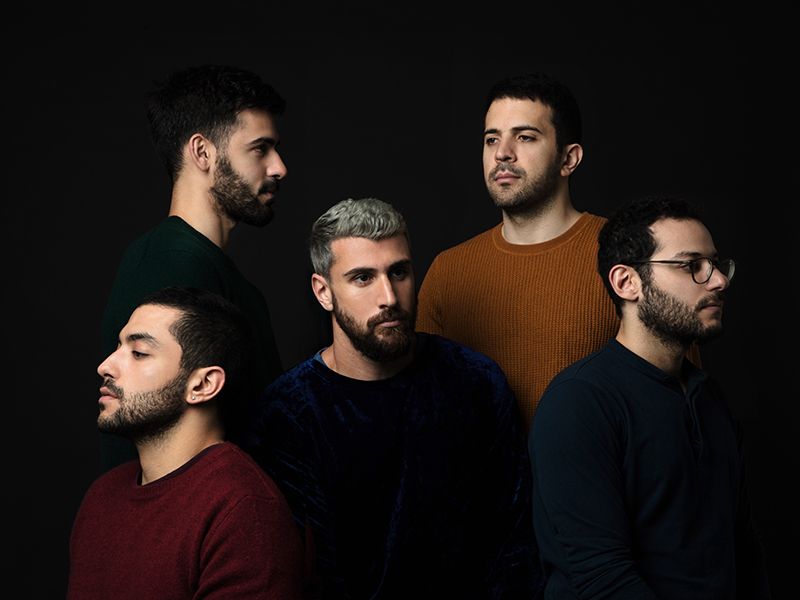
It’s fair to say that music and revolution go together like peas in a pod. But since the Arab Spring that began in 2011 with the Tunisian Revolution, the focus has shifted to the Middle East and North Africa as the ousting of presidents and dictators in Egypt and Libya, fell one by one.
The one legacy the protests on the streets brought about by the people was freedom of expression. Or more specifically, musicians found themselves a voice in an ever-changing part of the world. Artists, as well as people in the region are not afraid of speaking up anymore, regardless of whether they’re living under democratic or totalitarian rule. And it’s not necessarily dictators that are taken aim from the artists, issues such as unemployment, human rights, women’s rights and democracy amongst a wider range of issues are flagged and questioned.
One example of an artist raging against the dictatorial machine are people such as Emel Mathlouthi, a Tunisian singer-songwriter who pens tunes inspired by the 2011 ‘Jasmine Revolution’, which ousted longtime president, Zine El Abidine Ben Ali from power after ruling the country for 23 years. Ms Mathlouthi’s songs diversify from solo guitar performances to full-blown orchestra numbers. Having started writing songs out of frustration with the lack of opportunities available to her as a musician, she began writing political songs like "Ya Tounes Ya Meskina" ("Poor Tunisia"), which led to her songs subsequently being banned from Tunisian radio and television. Several years later, Ms Mathlouthi a critically acclaimed artist with a worldwide following playing shows throughout the globe.
In neighbouring Egypt, a new genre of music inspired and inspiring the 2011 revolution called Electro Shaabi, a genre that’s revolutionary in more ways than one. Like all urban music throughout the last few decades such as hip-hop and soul in the US, Electro Shaabi was born in the projects. It’s also driven by the youth. In fact, a strong catalyst behind this movement stems from the fact that 75% of Cairo’s population is under the age of 25. Such is its popularity in the toppling of Hosni Mubarak and the Muslim Brotherhood; this music is in the hearts and minds of the youth in Egypt, particularly Cairo. Where once Electro Shaabi was seen by many in the genre’s infancy as being strange, even vulgar, is now heard everywhere such as tuk-tuks, taxis and cafes. Not only are the likes of Oka & Ortega, Sadat and Alaa Fifty seen as heavyweights of the movement, they’ve also appeared in films, adverts and make regular TV appearances.
Looking to Lebanon, Mashrou’ Leila are seen as being the biggest indie rock band in the Middle East. Their music may have mass appeal for sounding like indie giants Radiohead but controversy follows them at every turn as many in the general public see their lyrics pertaining to homosexuality and forbidden love as being taboo. If Mashrou Leila weren’t deemed by conservative audiences as being disapproved enough, their lead singer Hamed Sinno is Sunni Muslim and openly gay. They even received an official ban, a few days before playing the Roman Amphitheater in Amman last year, despite playing there four times previously, for being in their words, “at odds with the traditions of the Roman monument.” Which is a bit ironic seeing as their last album was inspired by Greco-Roman mythology. Fortunately for them, their popularity has been growing steadily over the years with sell-out shows throughout Europe, a sell-out tour of North America as well as packing out arenas in the Middle East.
From war torn Syria, innovative works from the likes of rap group Latlateh whom have since been exiled to France. Latlateh told the BBC in a recent interview, "The situation in Syria is what motivates us to write. How can we sit by and watch all the pain and suffering that is going on around us and not speak out?" Then of course there’s the dabke stylings of cult hero Omar Souleyman, bridging the gap between East and West with a universal crossover of accessible Western dance beats to Eastern melodies.
At a time when instability and change is everywhere across the Middle East, music from the region can often provide a social commentary on what’s really going on at grassroots level and not necessarily filtered through government controlled mainstream media. People are no longer afraid of an old guard, as a new generation heralds in the new.